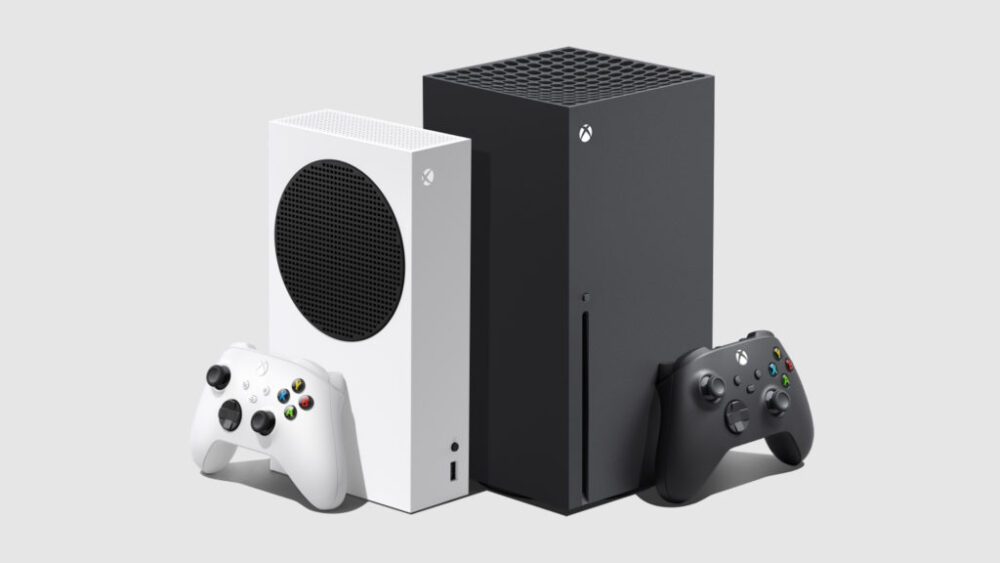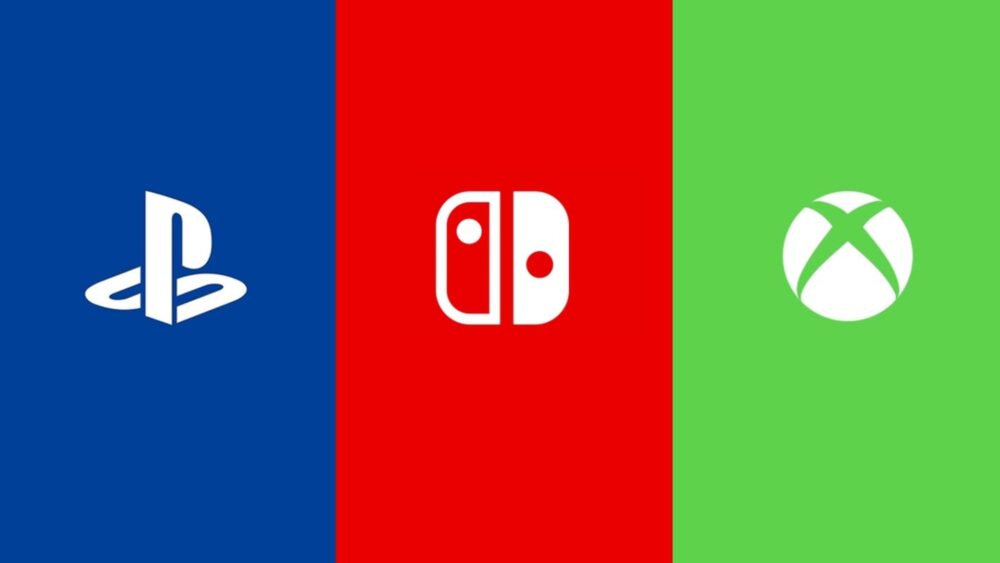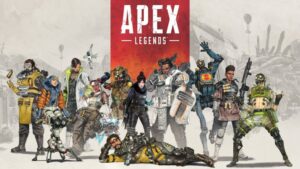Okay, so first things first — we’re not counting the Switch in this comparison. Not because we don’t like it (we do, and it’s awesome), but because it is not part of the next gen battlefield currently contested by Xbox Series X and PS5. But for those of you who do want to know — yes, the Switch had an amazing year, with some top tier games, marvellous third party support, and sales momentum that, almost six years in, refuses to die down as the Switch continues to sell at an unprecedented pace and top sales charts everywhere, and is en route to ending its run as one of, if not the, bestselling systems of all time.
Okay, happy? That covers the Nintendo side of things in our end of year review. Which brings us to the other two.
Every year, we talk about what system did the best at the end of the year. And, like, sure, we can do that this year too, we can try to discuss over the next thousand words or so whether PlayStation or Xbox had the better year, but seriously, what is actually the point? You probably already know which one is going to be crowned the winner already. Hell, you probably laughed when you saw the title to this piece, because the very idea that this might even be a question is outrageously funny. Because, you see, this isn’t a question. This year is arguably the single most lopsided matchup between PlayStation and Xbox we have ever seen. I mean on one hand we had a system that got several major great exclusives, supply constraints finally ending and sales pace hitting its stride, a bunch of major announcements (including major third party exclusives!), and just a constant upswell of great momentum that, finally, almost two years after it originally launched, started to justify the existence of the PS5. On the other hand, we have the Xbox Series X.
Seriously, what even happened with the Xbox Series X this year? What was this year? Their major titles slated for this year ended up slipping into 2023 (remember when Starfield was going to be out this November?), leaving behind very literally nothing in their wake; Microsoft’s existing momentum from 2021 was squandered, as games such as Halo Infinite, considered to be veritable GOTY contenders around launch, managed to do the impossible and snatch defeat from the jaws of an assured victory, by constantly missing milestones and deadlines, releasing next to no new content for months on end, and cancelling long-promised features they had assured the community would be a part of this game no matter what, after the mistakes made with Halo 5: Guardians (Halo infinite squandered its momentum so poorly that in spite of being free to play on the multiplayer side, it barely charts on Xbox or Steam charts at this point).
Microsoft’s announcement of the Activision Blizzard acquisition started things off with a bang, but things turned sour as said acquisition ran into regulatory roadblocks around the world (it is currently unclear if the acquisition will actually get to go through, though it would be unreasonable to write it off and say that it’s doomed just yet). They had E3 season practically all to themselves, with Sony opting to forego big shows in that time frame and contenting themselves with smaller shows, and still had a fairly middling outing. The Xbox Series S, with its already cheap price, amazing Game Pass proposition, and steep discounts, still could not even buoy Xbox to a second place finish, and Xbox saw itself outsold by the PS5 and the goddamn almost six year old Nintendo Switch, the world over. And, of course, Microsoft decided to end the year on a very sour note by not only skipping showing anything at The Game Awards (an end of the year event that frequently plays host to some of the largest announcements of the year, and which saw Sony bring quite a few things with them), prompting backlash to the extent that Xbox’s Aaron Greenberg had to promise news is coming on Twitter shortly afterwards; but also announcing that the whole consumer friendly angle Microsoft had been cultivating for the past few years is going to be promptly undermined when they, too, raise the price of their games to $70 next year. Wonderful. At least they have Game Pass.
Ah, Game Pass. Game Pass is great, there is no getting around that. You know what it got this year? Well, not much in the way of new flagship releases, because, see above: Microsoft released pretty much nothing all year. Third parties did come to the rescue, with excellent titles such as A Plague Tale: Requiem launching day and date on there.
[embedded content]
Game Pass absolutely represents the one area where Xbox had a lead over PlayStation, who launched their own service this year. In a word, the PS service sucks. Well, the middle tier is actually fine for what it is (though still nowhere close to Game Pass), but especially the most expensive tier, which was sold on the back of legacy content? What legacy content? Sony hasn’t released anything on that tier in months (this tier costs over a hundred bucks a year, you understand), and even the few scattered legacy releases they did put out got mired in controversy due to the boneheaded and baffling decision to use the 50Hz PAL versions, rather than the 60Hz NTSC ones.
Another area where Sony made fools of themselves this year — though it’s not like Microsoft came out looking too good themselves either — was in their constant whining and griping about the potential of Call of Duty launching day and date on Game Pass once Microsoft acquires Activision. Not Call of Duty going exclusive to Xbox, mind you, no. They weren’t complaining about losing Call of Duty, they were complaining that Microsoft might put it on their service at launch. Apparently, to them, this is enough to totally undermine PlayStation in the marketplace, because Jim Ryan, in his infinite wisdom, truly seems to think PlayStation is so fragile that one multiplatform game (which, to be clear, isn’t even the biggest multiplatform game associated with PlayStation) being available on Game Pass at launch would ruin it. Which is outrageous and ridiculous. Sony’s arguments against the deal are absolutely laughable, though, somehow, so far, the regulators the world over seem to be convinced. Who knows how or why.
But those two missteps aside, Sony had an amazing year. Consider the announcements — major third party exclusives hitting PS5 (such as Rise of the Ronin, Final Fantasy VII Rebirth, and, obviously, Silent Hill 2), as well as Sony getting to front major third party announcements (such as Street Fighter VI); consider the releases! Horizon: Forbidden West, which, although it continued the series’ tradition of amazing release timing by getting comprehensively overshadowed by Elden Ring just a week after launch, was a fairly great game, and a great sequel to the original. Gran Turismo 7, which had a false start due to awful micro transactions (which, thankfully, got balanced better with subsequent updates), but is a pretty damn great racing sim; God of War Ragnarok, which represents one of the best games ever made; and The Last of Us Part 1, which… okay, I have no way to spin that one positively. But still! Three out of four ain’t bad. It’s definitely much better than zero out of zero, which is what Xbox managed. And, as is the case every year, Sony ended the year with multiple exclusive Game of the Year contenders.
Consider the PS5’s sales! Sony finally managed to start to get the PS5 supply situation sorted towards the end of the yer, and the system started selling in some pretty hefty numbers — in some months outselling even the Switch — and widening the already substantial install base lead it holds over Xbox even further, in spite of Sony actually having the audacity to increase the price of the damn thing two years after it released. Consider the fact that every single multiplatform game released sold more on PlayStation versus Xbox (of the ones that released on PlayStation, Nintendo, and Xbox, Xbox was last place, meaning even the traditionally third party hostile Nintendo ecosystem is now more conducive to third party sales).

Consider the fact that Sony managed to make a major acquisition of their own earlier this year in Bungie (this one went through without much in the way of regulatory hurdles), adding to their GaaS repertoire (an area they themselves sorely lacked in until then). Consider that even Sony’s PC push ended up doing great, with God of War and Spider-Man pulling in some great numbers (although Sackboy and Uncharted ended up underperforming on PC).
Look, Sony had a lot of stumbles of their own this year. I’m not saying they had a flawless year, because boy did they put their foot in their mouth way too much. But, in an amazing display of competitive spirit, Microsoft decided to one up Sony, and do even worse in pretty much every way that matters. And, in the one area that matters most, the games, Sony delivered. Whether it be in the guise of major exclusives this year (where Sony released very literally 3-4 times the number of games Microsoft did, depending on how you want to count), or major announcements for next year (where Sony actually managed to announce absolutely nothing, but saw major third party exclusives announced for the PS5 anyway, whereas Microsoft’s major announcements for 2023 were that their major announcements for 2022 would actually come in 2023), or simply meeting their own announced release windows for their games (see above), the PS5 delivered on the games front this year. At that point, it wouldn’t matter of Xbox had the win in every other area, because what matters the most is the games. And PS5 had the games. Xbox didn’t.
Of course, Xbox also didn’t have the win in pretty much any other area either.
We can only hope next year is more competitive, because, whew. This was not pleasant. Xbox has gotten the benefit of the doubt for years now, and earned a lot of goodwill, but goodwill has to ultimately be backed up by substance, and I think time is running out on Xbox. They must show the games next year. We’ve gone on hearing “next year will be the year” for far too long now.
Note: The views expressed in this article are those of the author and do not necessarily represent the views of, and should not be attributed to, GamingBolt as an organization.
- amazon prime gaming
- article
- axie infinity
- Casino Games
- coingenius
- EA Sports
- Editorials
- Evil Geniuses
- Gaming
- Gaming Bolt
- gaming headset
- gaming pc
- madden nfl
- Microsoft
- Nintendo
- Online casino games
- pc games
- plato
- plato ai
- plato data intelligence
- plato game
- plato gaming
- platodata
- platogaming
- playstation
- prime gaming
- ps5
- Sony
- Team SoloMid
- xbox
- Xbox Series X
- zephyrnet












